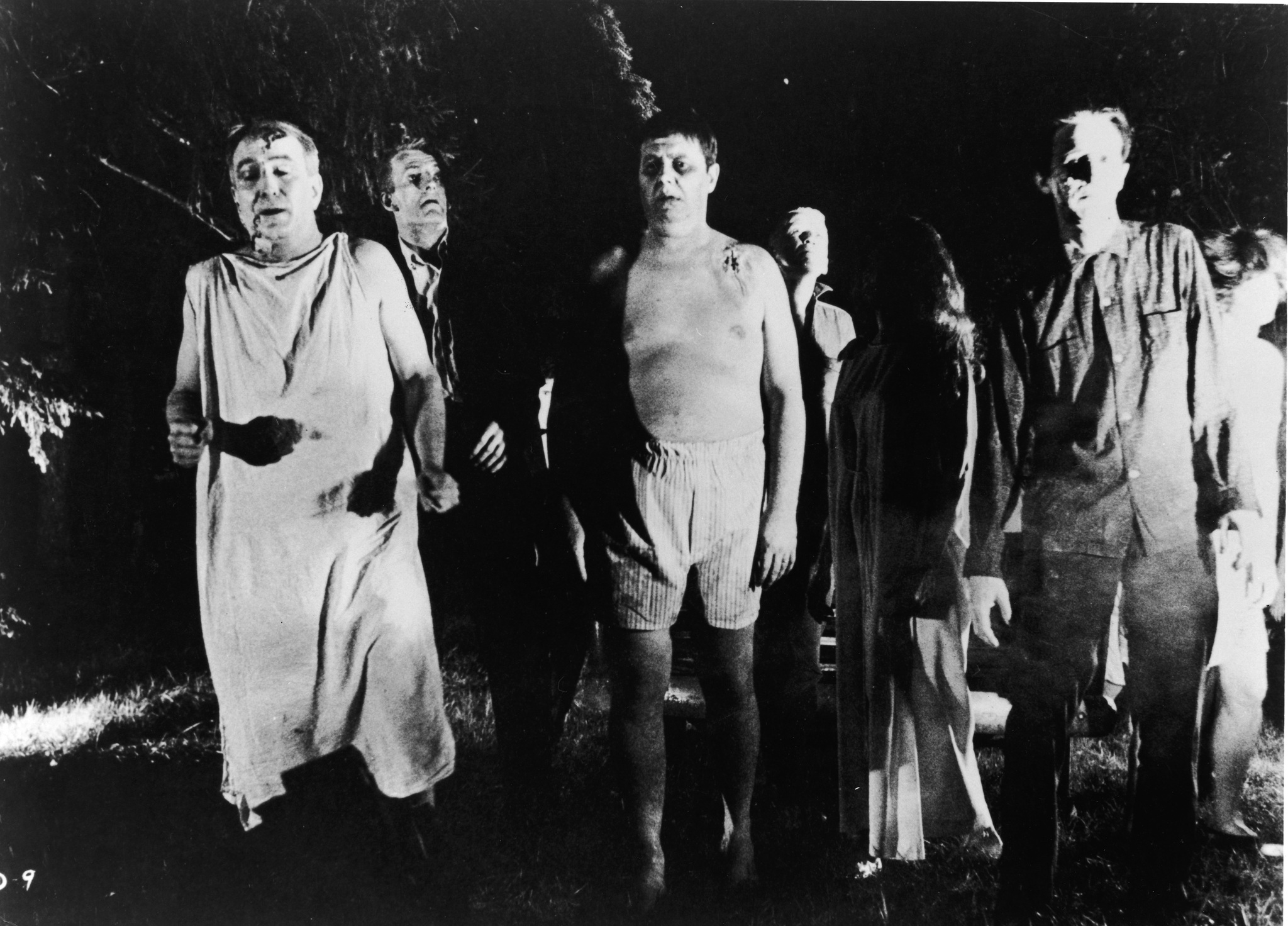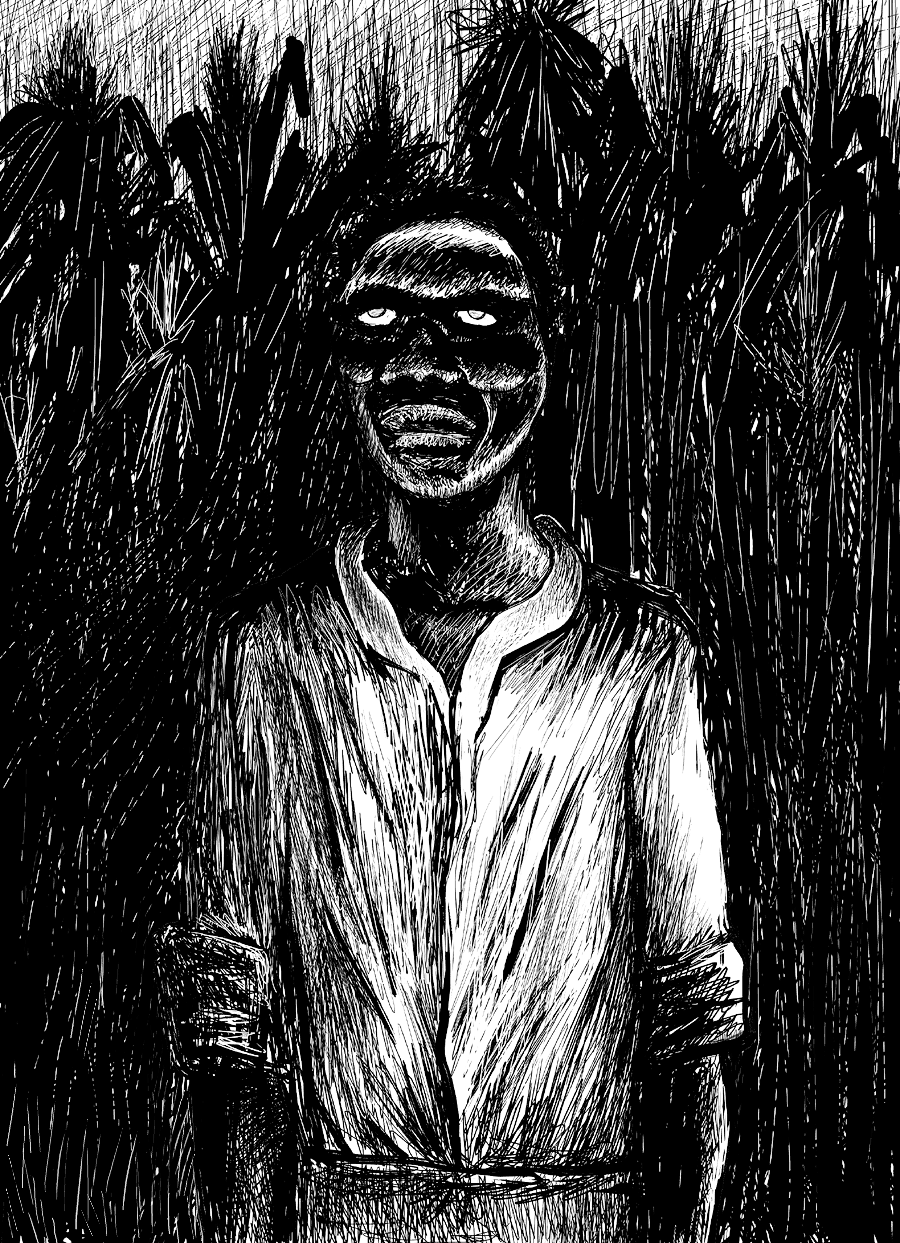|
Doctor Death (magazine)
''Doctor Death'' was the title of a short-lived pulp science fiction magazine published by Dell Magazines in 1935, as well as the name of the main character featured in that magazine. Doctor Death was an archcriminal who wanted to return the world to a primitive condition and used supernatural tools such as zombies and magic in his plots against humanity. The stories were written by Harold Ward under the pseudonym of "Zorro". Dell may have intended Doctor Death to be a continuation of a character of the same name in ''All Detective Magazine'', also published by Dell. Publication history and contents In 1932 Dell Magazines started a new pulp, titled ''All Detective Magazine''.Cook (1983), p. 21. The August 1934 issue featured "Dr. Death", a story about an archcriminal named Doctor Death; the hero is an insurance investigator named Nibs Holloway.Weinberg (1985), pp. 186–187. The author was given as Edward P. Norris, which was probably a pseudonym. Three more stories featur ... [...More Info...] [...Related Items...] OR: [Wikipedia] [Google] [Baidu] |
Dell Magazines
Dell Magazines was a company founded by George T. Delacorte Jr. in 1921 as part of his Dell Publishing Co. Dell is today known for its many puzzle magazines, astrology magazines, as well as fiction magazines such as '' Alfred Hitchcock's Mystery Magazine'', '' Ellery Queen's Mystery Magazine'', '' Asimov's Science Fiction'', and ''Analog Science Fiction and Fact''. It was sold in March 1996 by Dell's successor company to Crosstown Publications, with headquarters in Norwalk, Connecticut, under the same ownership as Penny Publications, LLC, which publishes PennyPress puzzle magazines. The name "Dell Magazines" is still used on some of its magazines. The first puzzle magazine Dell published was ''Dell Crossword Puzzles'', in 1931, and since then it has printed magazines containing word searches, math and logic puzzles, and other diversions. Former Dell magazines *''1000 Jokes'' *'' Ballyhoo'' *'' I Confess'' *'' Modern Screen'' *''Louis L'Amour Western Magazine'' *''Zane Gre ... [...More Info...] [...Related Items...] OR: [Wikipedia] [Google] [Baidu] |
Pulp Magazine
Pulp magazines (also referred to as "the pulps") were inexpensive fiction magazines that were published from 1896 to the late 1950s. The term "pulp" derives from the cheap wood pulp paper on which the magazines were printed. In contrast, magazines printed on higher-quality paper were called "glossies" or "slicks". The typical pulp magazine had 128 pages; it was wide by high, and thick, with ragged, untrimmed edges. The pulps gave rise to the term pulp fiction in reference to run-of-the-mill, low-quality literature. Pulps were the successors to the penny dreadfuls, dime novels, and short-fiction magazines of the 19th century. Although many respected writers wrote for pulps, the magazines were best known for their lurid, exploitative, and sensational subject matter, even though this was but a small part of what existed in the pulps. Successors of pulps include paperback books, digest magazines, and men's adventure magazines. Modern superhero comic books are sometimes consid ... [...More Info...] [...Related Items...] OR: [Wikipedia] [Google] [Baidu] |
Science Fiction Magazine
A science fiction magazine is a publication that offers primarily science fiction, either in a hard-copy periodical format or on the Internet. Science fiction magazines traditionally featured speculative fiction in short story, novelette, novella or (usually serialized) novel form, a format that continues into the present day. Many also contain editorials, book reviews or articles, and some also include stories in the fantasy and horror genres. History of science fiction magazines Malcolm Edwards and Peter Nicholls write that early magazines were not known as science fiction: "if there were any need to differentiate them, the terms scientific romance or 'different stories' might be used, but until the appearance of a magazine specifically devoted to sf there was no need of a label to describe the category. The first specialized English-language pulps with a leaning towards the fantastic were '' Thrill Book'' (1919) and ''Weird Tales'' (1923), but the editorial policy of ... [...More Info...] [...Related Items...] OR: [Wikipedia] [Google] [Baidu] |
Zombies
A zombie (Haitian French: , ht, zonbi) is a mythological undead corporeal revenant created through the reanimation of a corpse. Zombies are most commonly found in horror and fantasy genre works. The term comes from Haitian folklore, in which a ''zombie'' is a dead body reanimated through various methods, most commonly magic like voodoo. Modern media depictions of the reanimation of the dead often do not involve magic but rather science fictional methods such as carriers, radiation, mental diseases, vectors, pathogens, parasites, scientific accidents, etc. The English word "zombie" was first recorded in 1819, in a history of Brazil by the poet Robert Southey, in the form of "zombi"."Zombie" in |
All Detective Magazine
All or ALL may refer to: Language * All, an indefinite pronoun in English * All, one of the English determiners * Allar language (ISO 639-3 code) * Allative case (abbreviated ALL) Music * All (band), an American punk rock band * ''All'' (All album), 1999 * ''All'' (Descendents album) or the title song, 1987 * ''All'' (Horace Silver album) or the title song, 1972 * ''All'' (Yann Tiersen album), 2019 * "All" (song), by Patricia Bredin, representing the UK at Eurovision 1957 * "All (I Ever Want)", a song by Alexander Klaws, 2005 * "All", a song by Collective Soul from ''Hints Allegations and Things Left Unsaid'', 1994 Science and mathematics * ALL (complexity), the class of all decision problems in computability and complexity theory * Acute lymphoblastic leukemia * Anterolateral ligament Sports * American Lacrosse League * Arena Lacrosse League, Canada * Australian Lacrosse League Other uses * All, Missouri, a community in the United States * All, a brand of Sun Products ... [...More Info...] [...Related Items...] OR: [Wikipedia] [Google] [Baidu] |
Pulp Magazine
Pulp magazines (also referred to as "the pulps") were inexpensive fiction magazines that were published from 1896 to the late 1950s. The term "pulp" derives from the cheap wood pulp paper on which the magazines were printed. In contrast, magazines printed on higher-quality paper were called "glossies" or "slicks". The typical pulp magazine had 128 pages; it was wide by high, and thick, with ragged, untrimmed edges. The pulps gave rise to the term pulp fiction in reference to run-of-the-mill, low-quality literature. Pulps were the successors to the penny dreadfuls, dime novels, and short-fiction magazines of the 19th century. Although many respected writers wrote for pulps, the magazines were best known for their lurid, exploitative, and sensational subject matter, even though this was but a small part of what existed in the pulps. Successors of pulps include paperback books, digest magazines, and men's adventure magazines. Modern superhero comic books are sometimes consid ... [...More Info...] [...Related Items...] OR: [Wikipedia] [Google] [Baidu] |
Robert Weinberg (author)
Robert Edward Weinberg (August 29, 1946 – September 25, 2016) was an American author, editor, publisher, and collector of science fiction. His work spans several genres including non-fiction, science fiction, horror, and comic books. Biography Born in New Jersey in 1946, Weinberg sold his first story in 1967. Most of his writing career was conducted part-time while also owning a bookstore; he became a full-time writer after 1997. Weinberg was also an editor, and edited books in the fields of horror, science fiction and western. Weinberg graduated from Stevens Institute of Technology. From 1970 to 1981, Weinberg edited and published ''Pulp'', a fanzine devoted to pulp magazines; ''Pulp'' became noted for its interviews with pulp writers such as Walter B. Gibson and Frederick C. Davis. Pulp ran for 14 issues. He also published the ''Pulp Classics'', ''Lost Fantasy'', ''Weird Menace'', and ''Incredible Adventures'' series of pulp reprints at the same time. In comics, We ... [...More Info...] [...Related Items...] OR: [Wikipedia] [Google] [Baidu] |
Zombie
A zombie ( Haitian French: , ht, zonbi) is a mythological undead corporeal revenant created through the reanimation of a corpse. Zombies are most commonly found in horror and fantasy genre works. The term comes from Haitian folklore, in which a ''zombie'' is a dead body reanimated through various methods, most commonly magic like voodoo. Modern media depictions of the reanimation of the dead often do not involve magic but rather science fictional methods such as carriers, radiation, mental diseases, vectors, pathogens, parasites, scientific accidents, etc. The English word "zombie" was first recorded in 1819, in a history of Brazil by the poet Robert Southey, in the form of "zombi"."Zombie" in |
Elemental
An elemental is a mythic being that is described in occult and alchemical works from around the time of the European Renaissance, and particularly elaborated in the 16th century works of Paracelsus. According to Paracelsus and his subsequent followers, there are four categories of elementals, which are gnomes, undines, sylphs, and salamanders. These correspond to the four Empedoclean elements of antiquity: earth, water, air, and fire, respectively. Terms employed for beings associated with alchemical elements vary by source and gloss. History The Paracelsian concept of elementals draws from several much older traditions in mythology and religion. Common threads can be found in folklore, animism, and anthropomorphism. Examples of creatures such as the Pygmy were taken from Greek mythology. The elements of earth, water, air, and fire, were classed as the fundamental building blocks of nature. This system prevailed in the Classical world and was highly influential in medieva ... [...More Info...] [...Related Items...] OR: [Wikipedia] [Google] [Baidu] |
Arthur J
Arthur is a common male given name of Brythonic origin. Its popularity derives from it being the name of the legendary hero King Arthur. The etymology is disputed. It may derive from the Celtic ''Artos'' meaning “Bear”. Another theory, more widely believed, is that the name is derived from the Roman clan '' Artorius'' who lived in Roman Britain for centuries. A common spelling variant used in many Slavic, Romance, and Germanic languages is Artur. In Spanish and Italian it is Arturo. Etymology The earliest datable attestation of the name Arthur is in the early 9th century Welsh-Latin text ''Historia Brittonum'', where it refers to a circa 5th to 6th-century Briton general who fought against the invading Saxons, and who later gave rise to the famous King Arthur of medieval legend and literature. A possible earlier mention of the same man is to be found in the epic Welsh poem ''Y Gododdin'' by Aneirin, which some scholars assign to the late 6th century, though this is still a ... [...More Info...] [...Related Items...] OR: [Wikipedia] [Google] [Baidu] |
Fictional Mad Scientists
Fiction is any creative work, chiefly any narrative work, portraying individuals, events, or places that are imaginary, or in ways that are imaginary. Fictional portrayals are thus inconsistent with history, fact, or plausibility. In a traditional narrow sense, "fiction" refers to written narratives in prose often referring specifically to novels, novellas, and short stories. More broadly, however, fiction encompasses imaginary narratives expressed in any medium, including not just writings but also live theatrical performances, films, television programs, radio dramas, comics, role-playing games, and video games. Definition Typically, the fictionality of a work is publicly marketed and so the audience expects the work to deviate in some ways from the real world rather than presenting, for instance, only factually accurate portrayals or characters who are actual people. Because fiction is generally understood to not fully adhere to the real world, the themes and contex ... [...More Info...] [...Related Items...] OR: [Wikipedia] [Google] [Baidu] |
Defunct Science Fiction Magazines Published In The United States
{{Disambiguation ...
Defunct (no longer in use or active) may refer to: * ''Defunct'' (video game), 2014 * Zombie process or defunct process, in Unix-like operating systems See also * * :Former entities * End-of-life product * Obsolescence Obsolescence is the state of being which occurs when an object, service, or practice is no longer maintained or required even though it may still be in good working order. It usually happens when something that is more efficient or less risky r ... [...More Info...] [...Related Items...] OR: [Wikipedia] [Google] [Baidu] |





